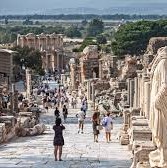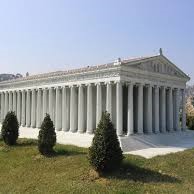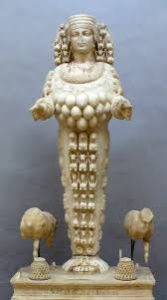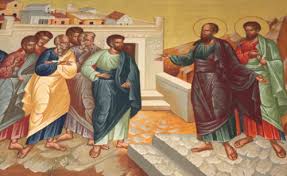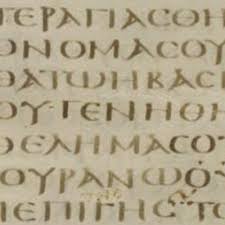The Bride of Christ (Messiah) Part 2 is the second part of a two-part discussion between Hilary and Rod on the subject. Who or what is the Bride of Christ (Messiah)? This is the central question that demands an answer that most believers are not clear on....
Obedience to Torah-Marked for Destruction-The Wisdom of Wearing Phylacteries-Reflections on Torah Portion ‘Ekev
Obedience to Torah-Marked for Destruction-The Wisdom of Wearing Phylacteries-Reflections on Torah Portion 'Ekev
This is Reflections on Torah Portion ‘Ekev—Obedience to God’s Instructions—Marked For Destruction—The Wisdom of Wearing Phylacteries.
We find this week’s Torah Portion/Reading, entitled, “’Ekev,” in Deuteronomy 7:12-11:25.
‘Ekev
The term ‘Ekev, used as the title of our reading this week, is interpreted by Jewish Torah scholars as “because.”
So why do we also have names or titles given to each week’s Torah Portion?
The Rabbis, in their apportionment of Torah into 54-weekly sections, also gave each parshah (ie. weekly portion or reading) a name “the first distinctive word in the Hebrew text of the portion in question, often from the first verse” of that week’s reading (Wikipedia).
The English rendering of the Hebrew term ‘Ekev is “because.” Because is used in the JPS translation of the Tanakh, as well as by the ESV, CJB and the RSV translations.
In the KJV, however, the translators chose to use “if ye.” I find the translation differences interesting: the JPS’ (and the other cited translations) use of “because” in my mind presumes that we have and continue to “hearken to these ordinances and keep and do them, that the LORD thy God shall keep with thee the covenant and the mercy which He swore unto thy father.” Conversely, the KJV, along with other prominent English translations state “if we hearken…” then we would receive mercy and fulfillment of the covenant that YHVH made with our ancestors. The “if ye hearken” to me suggests that we still have to prove ourselves, whereas the “because you did…” suggests to me that we’ve already proved ourselves. Personally, I much prefer the “if ye hearken…” than “because,” but one should not think too deeply on this. I just found it interesting is all.
A Content Rich Portion
Of the five books of Torah, I have to say that Deuteronomy is my favorite. It is my favorite because it offers us a 30,000-foot overview of the previous four-books of Torah. Moreover, Moshe does a phenomenal job rehashing YHVH’s indescribable exploits. He also describes how He brought us through many arduous experiences in our wilderness journey. As well as Moshe reminds us repeatedly of the benefits of keeping Yah’s Torah and the consequences of not keeping Torah.
Moshe writes Deuteronomy at the time of the great “Conquest of the Promised Land.” Moshe does not let us forget, he—Moshe—having put up with the people’s shenanigans for 40-years would, as punishment for his denying YHVH the glory He so just deserved, be denied the opportunity to enter the Promised Land. In addition, in some passages of Deuteronomy Moshe opens up to the reader and describes his anguish and broken-heart, denied the opportunity to enter the Land.
Moshe’s punishment stems from the “Waters of Meribah” incident, found in Numbers 20:7-12. It reads as follows:
“Then YHVH spoke to Moses: ‘Take the staff and assemble the community, you and Aaron your brother, and then speak to the rock before their eyes. It will pour forth its water, and you will bring water out of the rock for them, and so you will give the community and their beasts water to drink.’ So Moses took the staff from before YHVH, just as He commanded him. Then Moses and Aaron gathered the community together in front of the rock, and he said to them, ‘Listen, you rebels, must we bring water out of this rock for you?’ Then Moses raised his hand, and struck the rock twice with his staff. Moreover, water came out abundantly. Therefore, the community drank, and their beasts drank too. Then YHVH spoke to Moses and Aaron, ‘Because you did not trust me enough to show me as holy before the Israelites, therefore you will not bring this community into the land I have given them” (Num. 20:7-12; NET).
Thus Moshe’s punishment should serve as a stark reminder to each of us that YHVH is a jealous God who is sovereign, and most importantly, He is righteous and holy in all His ways. Furthermore, He will not share His glory with anything or any being. In fact, Abba stated through the writing of the Prophet Isaiah: “I am Yehovah, that is my name; and my glory will I not give to another…” (Isa. 42:8; ASV).
Abba is very serious about this. Moreover, I am afraid that too many of us take this aspect of YHVH’s character for granted. For I contend that many of us may be going through some bad stuff in our lives (be it of a financial, health, or relational nature) in part because we take Yah for granted. In essence, this is what Moshe did at the rock at Meriba. Father instructed Moshe to “speak” to the rock and it would then yield forth water. However, Moshe, in his ire toward the complaining people, struck the rock with his staff—not once, but twice. In addition, despite Moshe changing the script unannounced on YHVH, Father still kept His promise and provided the nation their much-needed water. Nevertheless, Father miraculously carrying through with bringing forth water from the rock did not dismiss the fact that Moshe failed to do as Abba instructed Him to do—which was to “speak to the rock.”
Why is this important to Father? Well, for one, Father requires of His chosen ones complete and utter obedience without compromise. And when we choose to go beyond that which Abba commands and do things our way—regardless how genuine and pure our intentions may be—we run the risk of invoking Yah’s wrath. For Father knows exactly what He is doing when He gives us commands and instructions. He is the Creator of all things of course. Moreover, if things are to go as they are supposed to go—according to YHVH’s purpose and timing—then they must go according to Yah’s implicit instructions.
Allow me to take you back to the Nadab and Abihu incident. Recall that these were two of Aaron’s sons. This incident took place at the time of the ceremonial installation of Aaron and his sons into what we refer to as the Levitical Priesthood (Lev. 9). During that solemn ceremony, specifically ordered and arranged by YHVH, Nadab and Abihu for whatever reason, elected to offer “unauthorized fire before YHVH.” Some translations famously refer to Nadab’s and Abihu’s actions as “offering strange fire before the LORD” (KJV). Regardless, Nadab’s and Abihu’s unauthorized act led to their cataclysmic, summary execution by YHVH’s consuming fire.
In the immediate aftermath of Nadab’s and Abihu’s death, Moshe tells Aaron, in the midst of Aaron’s obvious shocked grief:
“Among the ones close to Me I will show myself holy, and in the presence of all the people I will be honored” (Lev. 10:3; NET).
In other words, things are going to have to be done My Way, or they are going to have to be done My Way by those that are His elect. For in the end Yah will get the glory and honor that justly belongs to Him.
I love how J. H. Hertz, in his commentary of this passage puts it:
“…the greater a man’s knowledge or position, the stricter the standard by which he is to be judged, and the greater the consequent guilt and punishment, if there is a falling away from that standard. With the righteous, God is exacting, even to a hair’s breath” (Penteteuch and Haftorahs).
Sadly, the same sentiment applies to Moshe’s case, although Moshe was not subject to the horrendous death that Nadab and Abihu experienced. In Moshe’s case, at Meribah, Moshe, no doubt acting out of righteous indignation toward the rebellious people, struck the rock as opposed to speaking to it. This act of striking the rock denied YHVH the honor that belonged to Him and Him alone. For if Moshe would have simply done exactly what Father instructed him to do—speak to the rock which follows Father’s prescription of speaking into existence all that exists in the universe—Yah would have fully own that miracle. Moshe, through his selfish act, stole, in my opinion, Father’s miracle; and consequently unwittingly drew honor unto him.
How many times in our lives have we pulled a Moshe or an Abihu and Nadab, instead of doing things YHVH’s Way? When we do things our way and they run contrary to the way YHVH wants them to be, we stand a good chance of reaping the consequences of our selfish actions.
Paul wrote:
“Do not be deceived. God will not be made a fool. For a person will reap what he sows, because the person who sows to his own flesh will reap corruption from the flesh, but the one who sows to the Spirit will reap eternal life from the Spirit. So we must not grow weary in doing good, for in due time we will reap, if we do not give up.” (Gal. 6:7-9; NET).
Circling back to our discussion of ‘Ekev, we find in this reading a brief rehashing of the many miraculous and often tumultuous events leading up to our conquest of Canaan. In addition, the theme that is played out repeatedly throughout this entire reading is that of obedience—uncompromising obedience to Yah’s instructions—leading to things going well for our families and us. Repeatedly Moshe instructs us to remember what YHVH did for us individually and for our nation. And he drills into our conscience the wisdom of keeping Yah’s commandments; fearing (yare) YHVH; constantly dwelling upon Yah’s Torah; and to not delude ourselves into thinking that we’ve done anything to deserve the blessings of the Land that was coming to us. Indeed, it is a circuitous read, but these repeated themes and admonishments serve as a reminder to us even today of how important obedience to Yah and His Word is to our well-being, and that our obedience leads to fulfillment of the covenant Yah has made with us.
(Now, I am not talking necessarily about fulfilling the “Land Covenant” as is the case in our reading of ‘Ekev. Yes, that covenant continues to exist to this day as Paul taught in Galatians 3:17. We, engrafted into the commonwealth of Israel, are eligible to enjoy that same covenant that Yah made with the Patriarchs. However, our focus is must be on the renewed covenant described in the books of the prophets and is fully summarized in Hebrews 8, 9 and 10. We’ll touch briefly upon covenant a little later on in this post, but suffice to say that discussion of covenant as it relates to us today is something I’m looking forward to discussing with you sometime in the near future.)
Highlighting “Ekev.”
Therefore, what I wish to do for the remainder of this post is to simply highlight the areas of the reading that stood out most for me in ‘Ekev, and apply those principles to our walk with Messiah today.
Obedience to YHVH’s Torah
We find in Deuteronomy 7:12-8:10—the very first section of our ‘Ekev reading this week—where Moshe extols the blessings derived through obedience to YHVH’s instructions:
“And because you listen (i.e., shema—hear-keep-obey) to these rules and keep and do them, YHVH your God will keep with you the covenant and the steadfast love that He swore to your fathers” (Deu. 7:12; ESV).
Moshe is essentially communicating to us in this section of the reading that when we keep covenant with YHVH, He blesses us in the here and now of our lives. In addition, that blessing places us in Yah’s favor above all other peoples of the earth. Thus, our lives would be secure and blessed. And all the terrible things of life—the things that happen to so many of the non-believing peoples of the world—well (eg., poverty; sickness; hopelessness, fear, etc.), such things will not be known among us (Deu. 7:12-15).
Then in 7:16-26, Moshe instructs us that we were to destroy those nations YHVH would hand over to us in the process of taking possession of the Land of Promise. These nations, interestingly enough, were “marked or devoted for destruction” because of their many abominations.
Now, some have marginalized or outright ignored the significance of what Moshe was telling the Israelites regarding the nations that were “marked (or devoted) for destruction.” The common understanding of these nations being “marked/devoted for destruction” is that these 7-nations (the list can be found in Deu. 7:1) had for centuries engaged in idolatry; and that sin alone earned them the punishment of being destroyed—i.e., marked for destruction–by Israel. However, truth be told, the abominations these nations committed went well beyond their worshiping idols. Remember, Israel would have been the only nation on the face of the planet at that time that was not worshiping false gods—Egypt being one of the most notable of the lot.
However, so heinous were the sins of these 7-nations—which Father deemed as abominable (Deu. 7:25)–that Father required us to render unto them absolutely no pity and completely obliterate them from the face of the planet: every man, woman and child. As was done to Bashan and Heshbon before, Father, through Moshe recorded:
“And we devoted them to destruction…devoting to destruction every city, men, women and children” (Deu. 3:6; ESV).
That destruction of these cities (ie., Heshbon and Bashan) took place east of the Jordan River. So a short time later, as we prepared to cross the Jordan and conquer the Land, Abba reiterated the same strong punishment be rendered unto the 7-nations that were in possession of Canaan at that time:
“…and when the Lord your God delivers them up before you, and you defeat them, then you must totally destroy them. You shall make no treaty with them, nor show mercy to them. You shall not intermarry with them; you shall not give your daughters to their sons, nor shall you take their daughters for your sons. For they will turn your sons away from following Me so that he may serve other gods; thus the anger of the Lord your God will be kindled against you, and He will destroy you quickly. But this is how you must deal with them: you shall break down their altars, dash their pillars into pieces, cut down their Asherim, and burn their graven images with fire” (Deu. 7:2-4; QBE).
There was no provision in Yah’s grace plan for the abominable nations that would be dispossessed of their land and destroyed. We, Yah’s chosen people—His set-apart people (as flawed as we may have been) would be acting on Yah’s behalf as His “righteous arm” (e.g., strong hand) in this earthly-physical plain. We would physically destroy these abominable nations, although YHVH would be doing the fighting for us in the spiritual realm. Three times in Deuteronomy Moshe told us “YHVH shall fight for you” (1:30; 3:22; 20:4). For Moshe revealed that Father would send ahead of our onslaught “terror” in the form of a hornet infestation (either literally or figuratively, although most sources I consulted support a literal attack of some species or form of hornets or bees) that would drive the enemy from their various hiding-places and systematically reduce their ability to wage war and resist our attack (Deu. 7:20; ref. J. H. Hertz). And one-by-one, in YHVH’s perfect timing and plan, these nations would fall. The leaders of these nations would most notably be destroyed and their names—their reputations—their notoriety—would be wiped out of all memory.
YHVH devoted or marked the peoples of these nations for destruction in part because these were descendants of Anak. Apart from their idolatrous activities, it is almost impossible to understand why Father had such disdain for these nations using just biblical references. Why would Father have such disdain for the descendants of Anak—or more so the Amorite peoples, in general terms? The Anakim were a race of giants descended from Anak, according to the Tanakh, who lived in the southern part of the Land of Canaan—Gen. 23:2; Jos. 15:13.) And because these were descended from the Nephilim—the products of the union between the Watchers (Genesis 6 and 1 Enoch–the angels that kept not their first estate, but left their own habitation, whose destinies were everlasting chains under darkness unto the judgment of the Great Day—Jude 1:6) and the “fair daughters of men” (Gen. 6:1), Father devoted or marked these races and nations for destruction.
Again, the progeny of the union between the watchers and the human women described in Genesis 6 were giants; the most notable of these races in biblical history being Og of Bashan and Goliath. Because these were products of a terribly corrupted natural order, YHVH required that they be marked or devoted for destruction. In addition, this is information that few people in churchianity actually understand. Unfortunately, the general absence of this knowledge and history among, not just people of Faith, but also the non-believing peoples of the world, makes it easy for the average person to view YHVH as a terrible, mean, and unforgiving God or tyrant. However, with such information in the back of our minds when we read these passages, we understand why Abba required no mercy to these nations. If Father were to ever fully restore paradise to this world and mankind to the place he/she was originally designed to be at, the corruption of Yah’s natural order and the worship of fallen angels as gods had to be harshly dealt with.
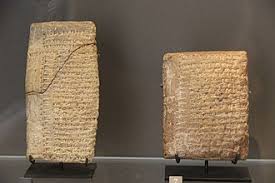
YHVH devoted the Amorite nations for destruction because their sin was deemed by Him to be abominable.
In fact, few people realize that Y’shua Messiah came not only to atone for the sins of the world, but to also dispossess or remove the legal hold that the enemy—the fallen ones—had over the nations of the world. That legal hold in part goes back to the “Tower of Babel” incident (Gen. 11). Moshe cryptically rehashes what appears to have been Father giving to certain angels oversight of the nations of the world at that time. We read in Deuteronomy 32:8:
“When God Most high divided up the nations—when He divided up humankind-He decided the people’s boundaries based on the number of the gods” (CEB).
Now, most of the authorized, highly respected English translations erroneously render this verse as “…He (i.e., YHVH) set the borders of the peoples according to the number of the children of Israel” (ASV, CJB,HCSB, NASB, KJV, JPS, and others). But this rendering of “according to the number of the children of Israel” makes no sense given that Israel had not become a nation at the time to which this verses is referring. However, when we look at the rendering of the LXX and the Qumran Deuteronomy Scrolls of this verse, we get what appears to be a more contextually accurate rendering of the verse, whereby the apportionment of the nations of men by YHVH was based upon a set number of divine beings or “sons of God;” sons of God being a general Old Testament reference to angelic beings. Why the difference? It appears that possibly Hebrew scribes around the time of Rabbi Akiba (2nd century A.D.) were responsible for replacing what could only be the original wording of “bene YHVH” with “bene Yisra’el.” Was this an intentional or an innocent scribal error? Or could this be something even bigger? I have my ideas on why, but I do not want to slide down that rabbit hole in this post and take us away from our focus passage. This is certainly something for another day’s discussion.
Anyway, at the Tower of Babel incident, Yah entrusted these angels to oversee the pagan nations of the world. Father eventually separated unto Himself out of these nations a people that would be wholly devoted to Him as their God and who would serve Him as His priests to the unbelieving nations of the world. He of course started off with Abraham of Ur, who Father established a covenant with (i.e., the Abrahamic Covenant), and the rest is history. Moreover, in case you did not know, Father called Abraham out of Ur, a pagan nation. He was neither a Hebrew nor a Jew at the time of his calling. He descended from a family that worshiped these angelic-based false gods. But Father saw something special in Abraham; called Him out of his father’s home; led him away from His family’s pagan nation; and sent him on an amazing journey, replete with covenantal promises and most importantly, a deep and abiding relationship with the Creator of the Universe:
“And the Scripture was fulfilled that says, ‘Abraham believed God, and it was counted to him as righteousness’ and he was called a friend of God” (Jas. 2:23; ESV).
YHVH’s War Against Idolatry
But getting back to these angels who were tasked with overseeing the nations by YHVH: it appears that those angels ultimately betrayed Yah’s trust. They enslaved the nation peoples by requiring them to worship them as gods.
What are idols? They are nothing more than carved images of the perceived forms of some of these fallen angels who took over the imaginations of the ancients. Thus the idols of these 7-abominable nations who were devoted or marked for destructions were to be completely destroyed as well (7:25), regardless the idol’s apparent value in gold and silver. For according to YHVH through Moshe, if one were to salvage an idol for its perceived monetary value, it is a certainty that he or she would succumb to the idol’s inherent evil. The whole thing, regardless of its material value, was abhorrent to YHVH. In fact, these idols brought with them curses; for curses inherently rested upon them (7:26). Thus, we must detest—loathe these articles as Yah does. These too were “marked or devoted for destruction” (7:26).
Idols Also Marked For Destructions
This issue of destroying the idols of the Amoritish nations and those idols having no place in the lives of the ancients, would of course equally apply to us as Netzarim today. How many of us, in many cases unknowingly, have had or currently have in our possession things like Buddhas, Native American articles, or any other articles that have some connection or link to pagan worship? These things, although they are not gods—they’re really just wood, metal, plastic or stone objects designed for the purpose of worshiping these fallen angelic beings–bring with them curses. Thus having them in our lives will ultimately bring curses upon our lives. Additionally, Father just outright hates them with extreme prejudice. Moreover, being a member of Yah’s elect, we must understand the things our Father loves and those things He loathes, such as idols, regardless how innocent they may appear to us. Father has little tolerance whatsoever for such things and neither should we.
Israel As An Arm of the Father
Thus, Israel would fulfill a few things in dispossessing the Amoritish nations of the Land: (1) We would destroy the last vestiges of the Nephilim—the Rephaim—the descendants of the Genesis 6 Watchers and their human wives. Their forbidden act perverted YHVH’s natural order and threatened to interfere in Yah’s Great Plan of Redemption and Salvation. (2) We would end, in part, the legal hold some of these angels, turned gods, held over nations of that region. In addition (3) our conquest of the Land would fulfill the Land Covenant YHVH made with the Patriarchs.
Later on, Y’shua our Messiah would finish the job during His earthly ministry and sacrifice.
Oh by the way, Moshe made it a point to let us know that our taking possession of the Land of Promise was in no way a reward for our righteousness. Our taking possession of the Land, in a great sense, was an historical example of Yah’s grace and love towards us and towards all mankind.
Father Was Tough On Us For a Reason
Moshe went on to remind us how Father miraculously carried us along our 40-year wilderness sojourn, all the while humbling and testing us (i.e., examining our hearts in the process). YHVH subjected us to hunger, thirst for purposes of building our trust in Him so that we would learn to recognize that everything we have comes from YHVH, and that we learn not to be slaves to our physical needs and desires (8:3). For Abba provided for our every need during those 40-years, despite our disobedience and lack of trust in Him, even after witnessing some of the greatest miraculous feats any human has ever seen with their own eyes (cf. Mat. 4:4; Luk. 4:4; 12:29, 30; Heb. 13:5, 6). Thus, we are to obey Yah’s Torah: living as He directs us, and fearing (yare) Him (8:6).
A Covenant Written on Stone and Hearts
In Deuteronomy 10:1-11, we find where Moshe rehashes the story of his receiving the 10-Commandments the first time on 2-stone-tables. YHVH provided the stone tables and wrote His commandments on them at that first go-round. When Moshe descended Mt. Sinai with those 2-tables, he found that the people had turned to the worship of the Golden Calf (a terrible throwback to their time of Egyptian bondage no doubt). In disgust and fierce anger towards the people, Moshe threw down to the ground and destroyed those 2-tablets that contained Yah’s commandments. He then destroyed and ground into dust the golden calf, which he threw into a nearby stream, the mixture of which he made the people to drink thereof (Exo. 32:20). It was Moshe’s intense mediation on behalf the people and his reaction to the peoples’ iniquity—their sin—that ultimately spared the nation from complete and total annihilation at the hands of an angry and jealous God (Exo. 32:9-14).
Later, YHVH called Moshe back up Mount Sinai to receive His 10-Words: this time, however, instead of YHVH cutting out stone tables and inscribing His Word upon them, Yah required Moshe to cut the 2-stone tables and bring them to YHVH where He inscribed His Word upon them.
This act obviously foreshadows the renewed covenant whereby we—House of Israel–bring YHVH our stony hearts and He inscribes upon them His Words—His Ways:
“Behold, the days come, saith YHVH, that I will make a new covenant with the house of Israel, and with the house of Judah: not according to the covenant that I made with their fathers in the day that I took them by the hand to bring them out of the land of Egypt; which my covenant they brake, although I was an husband unto them, saith YHVH: But this shall be the covenant that I will make with the house of Israel: After those days, saith YHVH, I will put my law in their inward parts, and write it in their hearts; and will be their God, and they shall be my people. And they shall teach no more every man his neighbor and every man his brother saying, Know YHVH: for they shall all know me, from the least of them unto the greatest of them, saith YHVH: for I will forgive their iniquity, and I will remember their sin no more” (Jer. 31:31-34; KJV).
Many contend that the renewed covenant has not taken place yet. And to a great extent I most certainly agree with them. However, I do believe in my heart of hearts that a down payment of that new covenant—a foretaste has already been realized by us: those who are Yah’s elect, saved by the blood of the Lamb, who possess His testimony and His Holy Spirit. Indeed, Yah writes His Torah upon our hearts and on our minds, even today. Soon, physical Israel—both houses of Judah and Israel—will realize this same covenant. Yah will restore paradise lost.
Phylacteries—Truth or Tradition?
In Deuteronomy 11:13-21, we come upon a rather challenging portion of Torah. I say this portion of Torah is challenging because the rabbis have instituted, as a result of their literal reading of the text, traditions and practices that when this passage is read, may cause us to wonder if God really requires us to wear “phylacteries,” otherwise known as “tefillin. “
The highlights of this section of our passage reads as such:
“And it shall come to pass, if ye shall hearken diligently unto my commandments which I command you this day, to love YHVH your Elohim, and to serve Him with all your heart and with all your soul…Therefore shall ye lay up these my words in your heart and in your soul, and bind them for a sign upon your hand, that they may be as frontlets between your eyes…And thou shalt write them upon the door posts of thine house, and upon thy gates that your days may be multiplied, and the days of your children, in the land which YHVH sware unto your fathers to give them, as the days of heaven upon the earth” (KJV).
As mentioned, the rabbis have taken this critical piece of scripture, which is also a brilliant piece of prose, and made it into yet another set of traditions and practices that are based upon an erroneous reading and understanding of this passage.
Tefillin or phylacteries are a set of small leather boxes containing scrolls of parchment inscribed with verses from Torah. Tefillin are worn by orthodox Rabbinic Jewish males during daily morning prayers, excluding Sabbaths.
The laws governing phylactery composition and use was developed by Rabbis and are contained in the Talmud (Sanh. 88b). These Rabbinic laws are literal interpretations of Deuteronomy 6.8; 11.18; Exodus 13.9,16.
Each leather box contains 4 scriptural passages: Exodus 13.1-10, 11-16; Deuteronomy 6.4-9; 11.13-21. According to the Rabbis, these passages must be written in black ink, in Hebrew square lettering, on parchment (reference Shab. 79b; Men. 32a), from the skin of a clean animal (Shab. 108a).
Talmud explicitly directs how the Torah verses are to be arranged on the parchment, the mode of writing (ie., rules on how the scribe is to draft the passages onto the parchment), how one is to put on the tefillin (ie., the order in which the phylacteries are to be donned and its exact placement on the body), when the implements may be worn, and the exact blessings to be recited while wearing them.
Let’s step back now into reality—spiritual reality that is–and understand the true meaning of this passage in Spirit and in Truth.
Contextually speaking, we find in our ‘Ekev Reading that Father was so insistent that we keep His Torah, that He gave to us examples of just how much we are to honor and keep His Word. These examples are essentially metaphors for the depths of Torah keeping we are expected to keep as Yah’s elect. Essentially, Father was saying to us that our commitment to Torah must be manifested in our labor—the works of our hands—thus the binding of His Word as a sign upon our hand. Furthermore, Father’s Torah must be ever on our minds—in our every thought so to speak–likened unto frontlets between our eyes (i.e., the frontlets representing the fulcrum of our thoughts). Additionally, the boundaries of our homes should reflect the pervasiveness of Yah’s Word in our lives, such that it appears as if Yah wrote His Word upon the doorposts and gates of our homes. Remember, in the ancient world, the gates and doorposts of the home was sacred and some have deemed these places as the most important places bar-none of a man’s home. It is a place where covenants were established and deep abiding relationships were made. Back in the day, not just anyone would go into another’s home. One had to be welcomed and then invited through a man’s gate and past the doorpost of his home. Any who would attempt to come into another man’s home absent such a welcome or invitation was customarily viewed as an intruder and they would be dealt with appropriately.
Thus, for the Hebrew, Yah’s Word must become the first line of defense over a man’s home. For every member of that man’s family would have to fear YHVH; every child must be taught YHVH’s Torah perpetually; the governing of the home would be under the auspices of Torah; the protection of the home and every member’s safety and wellbeing therein would be under that of Yah’s eternal Torah and the blessings derived from keeping Torah therein.
To limit Torah to a verse or two on a piece of parchment that is to be contained in a small box that is to be tied to one’s head and forearms, or that is encased in a mezuzah that is nailed to the doorpost of one’s home, does not in any way fulfill the instruction that Moshe is giving here, nor does it fulfill the context of the passage.
Moshe, before getting to the part where he talks about frontlets, bindings and mezuzahs, instructs us to “…lay up these my words in your heart and in your soul.” Therefore, to think that one can simplify the importance of keeping the whole of Torah by wearing phylacteries and nailing mezuzahs to our homes is ludicrous. Our entire life must be occupied by YHVH’s Word; His Ways; His Spirit. And it becomes our responsibility to teach His Words and Ways to our children and so forth. In so doing, we will prosper and live long in the Land that our Elohim gave us (11:13-21).
Is it wrong to done tefillin or phylacteries or install mezuzahs on the doorposts of our homes? Yes and no. The answer to that question is dependent upon whose instructions you are going to follow in carrying out these activities. Tefillin or phylacteries are rabbinic inventions and traditions. The rules that govern phylactery use is regulated to the extreme point of being overly complex and difficult to carry out and be compliant with Rabbinic specifications.
Remember how Y’shua our Master denounced the traditions and practices of the rabbis:
13 But woe unto you, scribes and Pharisees, hypocrites! for ye shut up the kingdom of heaven against men: for ye neither go in yourselves, neither suffer ye them that are entering to go in.
14 Woe unto you, scribes and Pharisees, hypocrites! for ye devour widows’ houses, and for a pretence make long prayer: therefore ye shall receive the greater damnation.
15 Woe unto you, scribes and Pharisees, hypocrites! for ye compass sea and land to make one proselyte, and when he is made, ye make him twofold more the child of hell than yourselves.
(Mat 23:13-15 KJV)
By implementing the traditions of phylactery use, the Rabbis have added to Torah, which in and of itself is a violation of Torah:
“Ye shall not add unto the Word which I command you, neither shall ye diminish ought from it, that ye may keep the commandment of YHVH your Elohim which I command you” (Deu. 4:2; KJV).
Thus I would say that the use of phylacteries is not advisable.
The traditions and laws of the Rabbis also govern mezuzah use. But I can also see how one may bring glory to Yah and respect to the Faith that is practiced by the household that maintains a mezuzah by following the Spirit of the tradition and this mitzvot. We have a mezuzah on the doorframe of our home, but we do not adhere to the rules of the Rabbis that govern its use. For us it is purely symbolic and ornamental, and it serves as a means by which to attract inquiries into what it is we believe and practice. So, if one is considering installing a mezuzah who is a member of our Faith community, I would only advise him or her to seriously consider under whose authority you would be installing and using the thing, and then do accordingly.
Well, that concludes our reflection of ‘Ekev. I pray that it provided you food for thought and that it encourages you to conduct your own read and study of this beautiful and thought-provoking passage.
Abba willing, we will be back next week with another installment of the Messianic Torah Observer. Until then, may you be most blessed fellow saint in training. Shalom and take care.
Faithfully.
The Bride of Christ (Messiah) Part 2–STAR 22
The Bride of Christ–Part 1–Sabbath Thoughts and Reflections 21
What did Shaul and John mean when they made reference to the bride of Christ? Were they referring to the Church Triumphant? Were they referring to individual born again Christians? Hilary and I discuss this important element of our Faith in the first of a two-part...
Occupying Territory–Parashah 46 Part 7
Occupying Territory Deuteronomy 11:22-25 This passage brings us to the end of Parashah-46. As it has been throughout this lengthy portion, we see again Moshe's admonishment that we love Adonai our God. This concept of love in the Ancient Near East continues to be...
The Great Commandment–Torah Living Daily Challenge–Parashah 46 Part 6
The Great Commandment Deuteronomy 11:10-21 Verse 10 gave us a glimpse of the many features associated with our pending inheritance. One of those features included the fertileness of the land. Yahovah compared the fertileness of the land of Canaan compared to Egypt,...
The Messianic Declaration of Independence–Sabbath Thoughts & Reflections 20
The Messianic Declaration of Independence InfoWars on Americans' knowledge of history and Independence Day. Galatians 5:1 Matthew 23:23-34 The Opening of the Declaration of Independence When in the Course of human events, it becomes necessary for one people to...
Barna Group on Same Sex Marriage
The Barna Group Reports on Same-Sex Marriage I came upon these statistics published by the well established and respected Barna Group, regarding the recent U.S. Supreme Court ruling on same-sex marriage. I found these statistics not so surprising I must admit and it...
The Supernatural, Evil and Darkness of our Day–Torah Daily Living Challenge
Last week SCOTUS (Supreme Court of the United States) legalized same sex marriage in all 50-States of union; a week ago, a crazed, seeming racist young man shot and killed 9 men and women attending a bible study in a black-church in Charleston S.C.; last month rioters...
Willing Obedience is a True Act of Love–
Willing Obedience is a True Act of Love Deuteronomy 10:12-11:9 What does our experience tell us about Yahovah? What is our testimony? It is these exploits, these events that occurred in our lives that make us strong and ready to possess the land. We must not...
God’s Law Written on our Hearts–Parashah 46 (Part 4)
God's Law Written on our Hearts Deuteronomy 10:1-12 Moshe regales the time past when Yahovah instructed him to come up the holy mountain with two tables of hewed stone, similar to the ones that Yahovah provided in the first time. (Reference Exo. 34:1, 2) Prior to...
“Tie them as symbols on your hands and bind them on your foreheads”? (Deuteronomy 6: 6-8)
What do you think YHWH (Yahweh) meant by: "Tie them as symbols on your hands and bind them on your foreheads"? Deuteronomy 6: 6 These commandments that I give you today are to be upon your hearts. 7 Impress them on your children. Talk about them when you sit at home...

